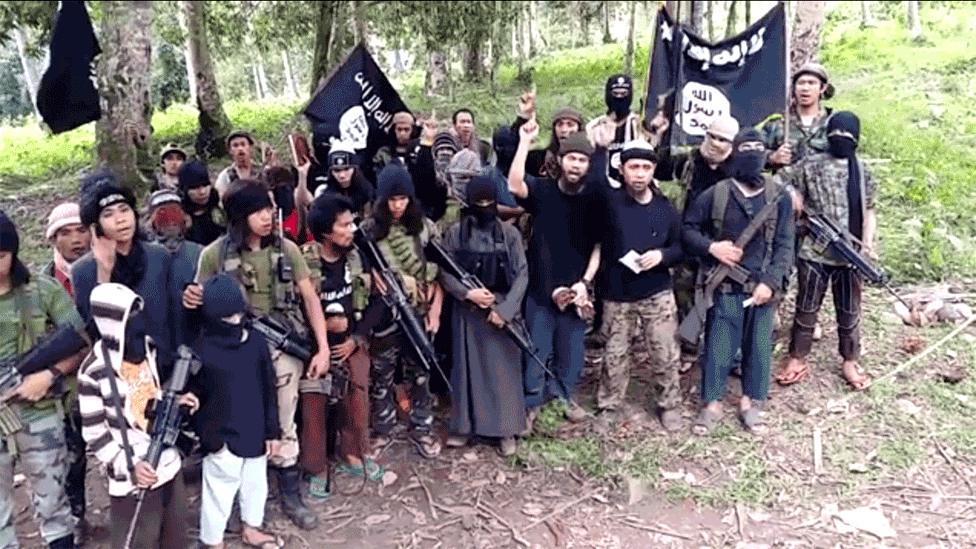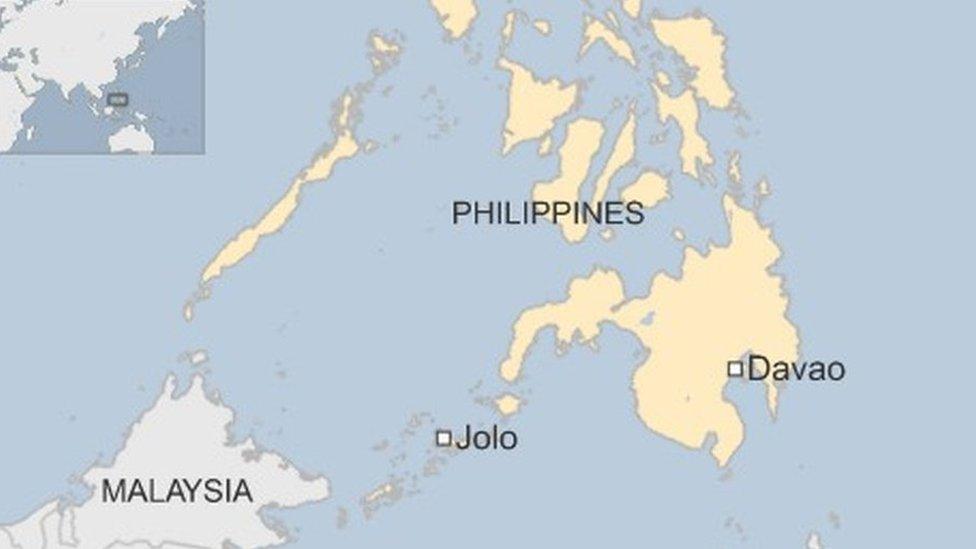Philippine Abu Sayyaf militants free Norwegian hostage
- Published

Abu Sayyaf seeks ransom payments to fund its campaign for an independent Islamic state
Islamist militants in the Philippines have released a Norwegian man taken hostage along with two Canadians who the group beheaded, officials say.
The Abu Sayyaf jihadists freed Kjartan Sekkingstad in southern Sulu province on Saturday. Unconfirmed reports say a large ransom was paid.
The group of four hostages was seized from a resort a year ago. A Filipina woman was freed in June.
Abu Sayyaf is fighting for an independent Islamic state.
It often attempts to raise money from ransom payments.
Mr Sekkingstad was freed in the town of Patikul on Jolo island. He was handed over to rebels of the Moro National Liberation Front group, which has signed a peace deal with the government and helped negotiate the release.
Philippine President Rodrigo Duterte had suggested in August that a large ransom had already been paid but that the jihadists were still holding Mr Sekkingstad.
The army said on Saturday Mr Sekkingstad had been freed because of its relentless attacks on the militants.
The four hostages had been taken from an upmarket resort on Samal island in Davao.
In April, the militants killed Canadian John Ridsdel after a ransom deadline expired, then a week later beheaded Robert Hall.
Mr Hall's partner, Marites Flor, was freed in June.

What is Abu Sayyaf?

A fractured network of militants. Some of its factions have sworn allegiance to so-called Islamic State.
It is one of the smallest but most radical of Islamist separatist groups in the southern Philippines. Its name means "bearer of the sword" in Arabic.
It split from the larger Moro National Liberation Front in 1991. Membership is said to number in the low hundreds.
What does it want?
The group has been agitating for the creation of an independent Islamic state in predominantly Catholic Philippines, and uses tactics such as hostage-taking and bombings to pressure the government.
How dangerous is it?
Numerous Filipino and foreign civilians have been kidnapped in the southern Philippines and parts of neighbouring Malaysia and used as hostages to extract ransoms.
Though some have been released after negotiations or attacks by Philippine forces, others have been murdered when demands were not met.
Abu Sayyaf has also said it carried out bombings in cities in the south and a ferry bombing in 2004 in Manila Bay that killed more than 100 people, considered one of the worst terror attacks in the Philippines.

- Published14 June 2016

- Published14 June 2016
